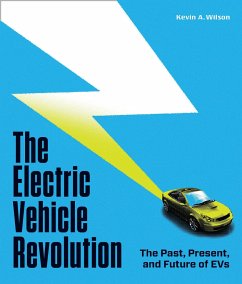
Battery Technology for Electric Vehicles
Public science and private innovation
Versandkostenfrei!
Versandfertig in 1-2 Wochen
169,99 €
inkl. MwSt.
Weitere Ausgaben:

PAYBACK Punkte
85 °P sammeln!
Electric drive vehicles (EDVs) are seen on American roads in increasing numbers. Related to this market trend and critical for it to increase are improvements in battery technology. Battery Technology for Electric Vehicles examines in detail at the research support from the U.S. Department of Energy (DOE) for the development of nickel-metal-hydride (NiMH) and lithium-ion (Li-ion) batteries used in EDVs. It provides a detailed global evaluation of the net social benefits associated with DOEs investments, the results of the benefit-to-cost ratio of over 3.6-to-1, and the life-cycle approach that...
Electric drive vehicles (EDVs) are seen on American roads in increasing numbers. Related to this market trend and critical for it to increase are improvements in battery technology. Battery Technology for Electric Vehicles examines in detail at the research support from the U.S. Department of Energy (DOE) for the development of nickel-metal-hydride (NiMH) and lithium-ion (Li-ion) batteries used in EDVs. It provides a detailed global evaluation of the net social benefits associated with DOEs investments, the results of the benefit-to-cost ratio of over 3.6-to-1, and the life-cycle approach that allows adopted EDVs to remain on the road over their expected future life, thus generating economic and environmental health benefits into the future.













